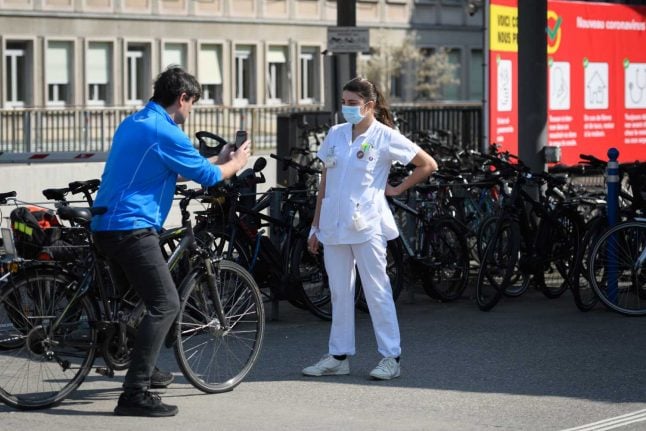Although there are high fines levied for breaching quarantine – sometimes as high as 10,000 francs – healthcare workers who return from high-risk countries can be called into work the very next day.
As reported in Swiss news outlet 20 Minutes, the reason for the exception is simple: healthcare workers are more needed than ever.
Therefore, if there is a staff shortage or someone in the health sector is otherwise needed, they can be called up by their employer and will face no consequences for going to work.
Q&A: What travellers to Switzerland should know about the new 10-day quarantine rule
Although allowing possibly infected people to work with the already ill and vulnerable – not to mention other healthcare workers – may appear to be a poor way of controlling the virus, University Hospital Zurich spokesman Claudio Jörg told 20 Minutes Swiss hospitals’ “strict security requirements” prevent the virus from being transmitted.
It is up to shift supervisors and the hospital’s HR department to decide whether a returning staff member will be asked to work.
Hospitals advise their staff against travelling to high-risk areas, but Swiss law does not allow an employer to prevent an employee from making such a trip.
READ: Everything you need to know about Switzerland's new quarantine requirement
While Jörg did not indicate whether or not a returning employee had been asked to skip quarantine in order to work, a staff shortage at Spitex in Zurich has already seen one returning employee asked to work.
The Zurich Health Directorate defended the approach taken by the clinic, highlighting the essential nature of healthcare employees.
“Employees in the nursing sector as well as in Spitex are people whose work is essential for the maintenance of the health system,” says spokesman Marcel Odermatt.
According to 20 Minutes, said that a similar system applies in Basel – although here a request will need to be made to cantonal health officials for approval.
Other hospitals contracted by Swiss media, including some in Geneva, Lausanne, Bern and Aarau have said they will respect the ten-day quarantine requirement.



 Please whitelist us to continue reading.
Please whitelist us to continue reading.
Member comments